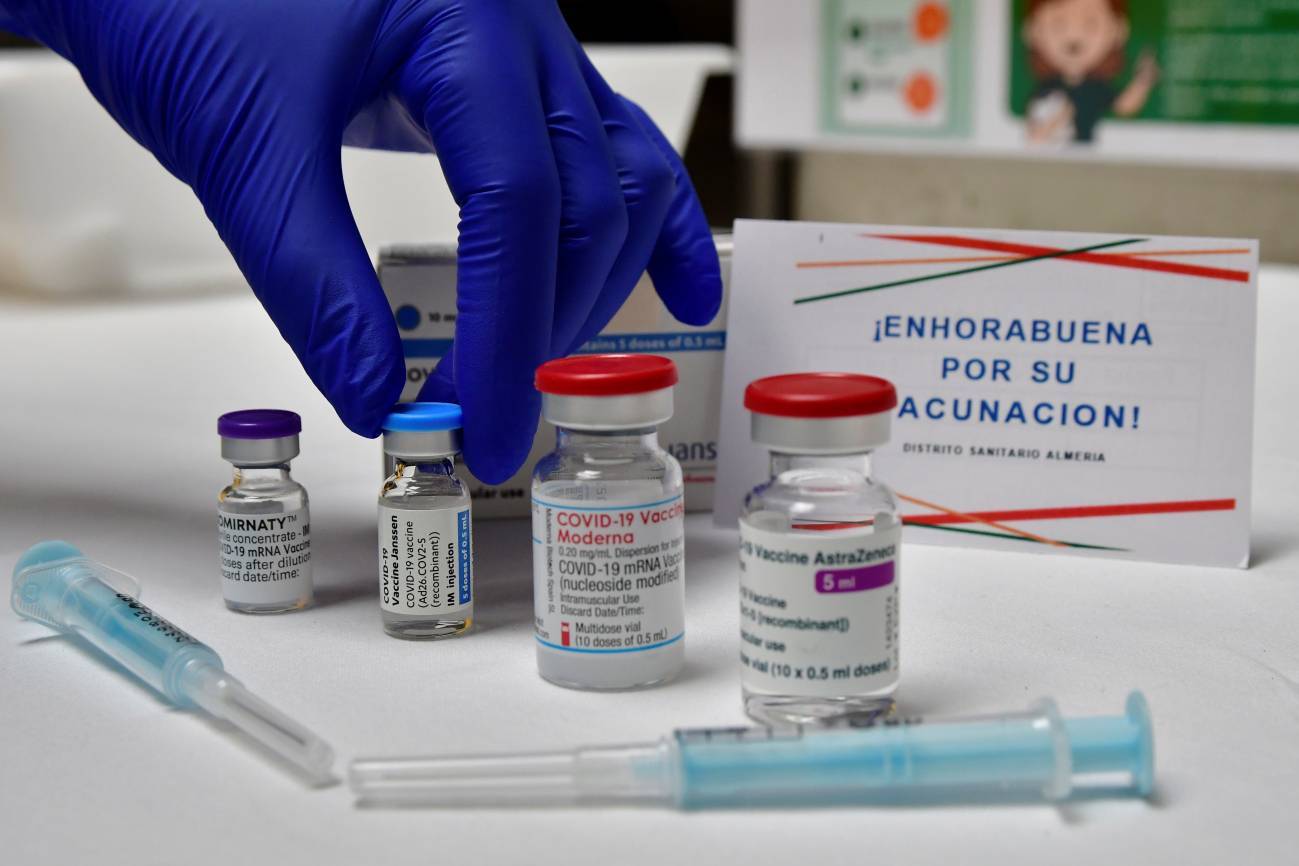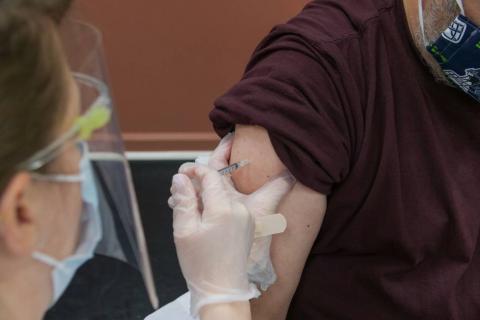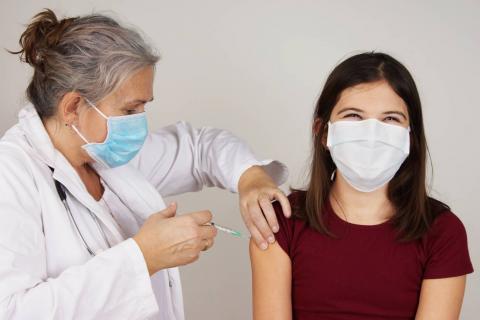Reaction to study examining neurological complications after SARS-Cov-2 infection and after vaccination
A study of 32 million adults in England has shown a small increase in the risk of suffering from Guillain-Barré syndrome and Bell's palsy, two neurological conditions, after receiving AstraZeneca's vaccine. There was also an increased risk of stroke after receiving Pfizer's vaccine. However, according to the paper, these side effects are rare and the chances of suffering them are much higher after SARS-CoV-2 infection.

In the image, the four vaccines that have been available in Spain. / EFE | Carlos Barba | Archivo.
Salvador Iborra - complicaciones neurológicas EN
Salvador Iborra
Immunologist
The immune system can 'mistakenly' attack our nervous system. This causes very rare neurological disorders, such as Guillain-Barré syndrome, which is characterised by muscle weakness or paralysis due to damage to the peripheral nervous system. The overall incidence of this disorder varies between one and seven cases per 100,000 population per year, depending on age. Another similar disorder is Bell's palsy. In other cases, an abnormal immune response is associated with platelet destruction (immune thrombocytopenic purpura), which can lead to stroke.
The study looks at the occurrence of these disorders during the 28 days after administration of the first dose of AstraZeneca's vaccine (Vaxzevria, ChAdOx1nCoV-19), or Pfizer's vaccine (COMIRNATY, BNT162b2). The risk of developing these disorders after infection with SARS-CoV-2 is also assessed.
The study concludes that vaccination with Vaxzevria increases the risk of developing Guillain-Barré syndrome and Bell's palsy, while vaccination with COMIRNATY increases the risk of developing stroke, with a higher incidence in women. The study finds no association between vaccination and other disorders of a similar nature, such as myasthenia, subarachnoid haemorrhage or meningitis, which are associated with covid-19.
An important finding of the study is that these disorders are more frequent after infection with the virus than after vaccination. Thus, the risk of developing Guillain-Barré syndrome is four times higher after infection with SARS-CoV-2 than after the first dose of Vaxzevria. However, the increased risk is relatively low, measured as an excess of cases over what is considered normal per 10 million people: it is between 38 more cases for Guillan-Barré syndrome (AZ), and 60 more cases for stroke (Pfizer).
An important value of the study is that it uses a database that includes all 32.5 million people vaccinated in England between December 2020 and the end of May 2021, along with hospital admission records in this period, and is not based on isolated observations (clinical cases), which can lead to bias. It also reduces the risk of other confounding factors influencing the conclusions. Therefore, the observed correlations should be robust and consistent. In fact, the study confirms part of its findings in the Scottish national database.
The findings of the study can inform decisions on how to proceed in other countries. They allow a better assessment of the risk-benefit balance of these vaccines and a more objective decision on a mass vaccination strategy.
The most important limitation is that only the appearance of disorders after the first dose of vaccine is studied, so it does not clarify whether these risks increase after a second dose, which would be expected. On the other hand, as only hospital records are considered, disorders of lesser severity or those that may appear in people with poor health coverage are not assessed. Finally, medical history is not taken into account, so some of the individuals may have had previous episodes of certain disorders, such as myasthenia.
Martina Patone et al.
- Research article
- Peer reviewed
- People
- Observational study



